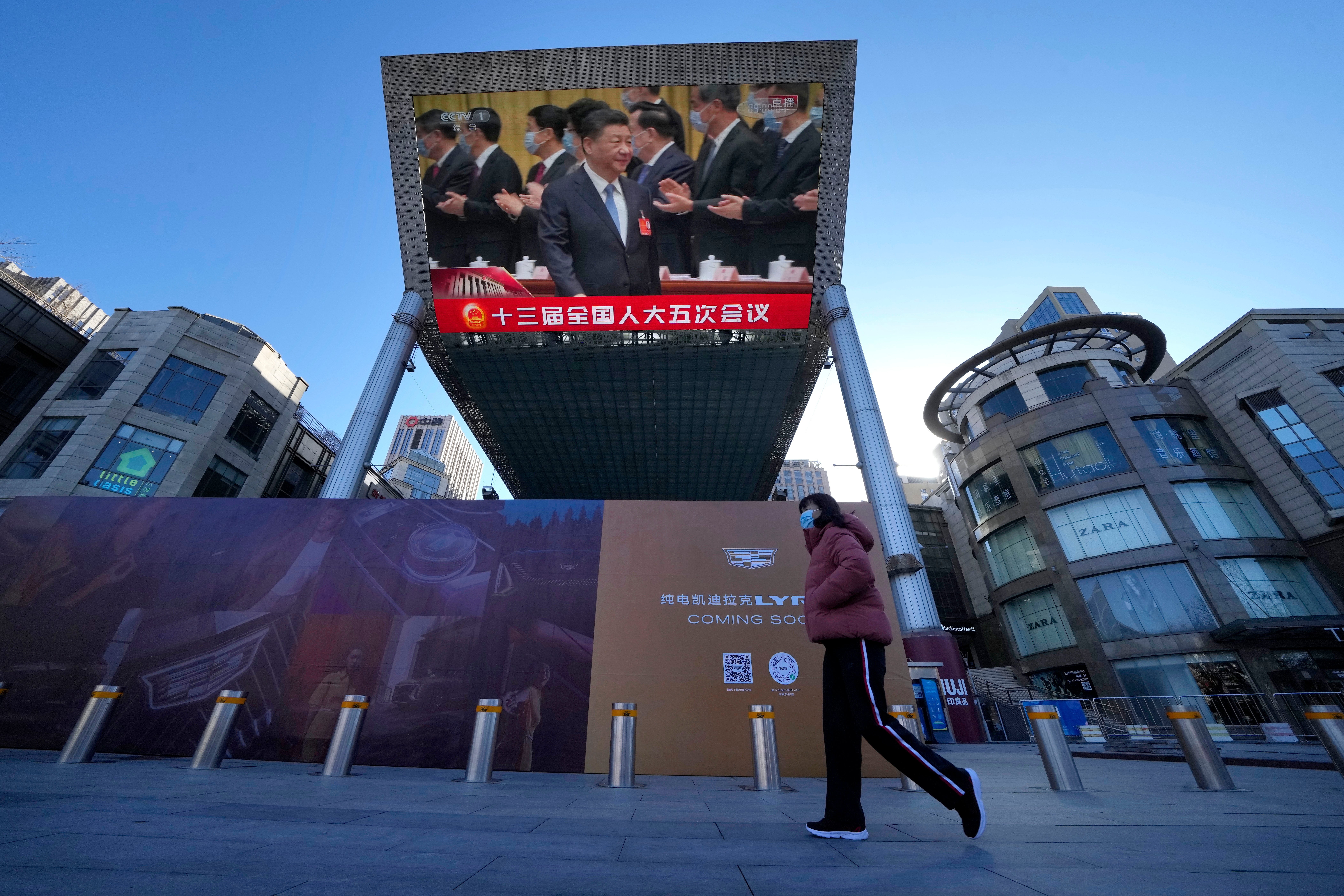China seeks to calm markets with promise of economic support
China’s leaders are trying to calm jittery investors by promising more help for its struggling real estate industry, internet companies and entrepreneurs who want to raise money abroad

Your support helps us to tell the story
From reproductive rights to climate change to Big Tech, The Independent is on the ground when the story is developing. Whether it's investigating the financials of Elon Musk's pro-Trump PAC or producing our latest documentary, 'The A Word', which shines a light on the American women fighting for reproductive rights, we know how important it is to parse out the facts from the messaging.
At such a critical moment in US history, we need reporters on the ground. Your donation allows us to keep sending journalists to speak to both sides of the story.
The Independent is trusted by Americans across the entire political spectrum. And unlike many other quality news outlets, we choose not to lock Americans out of our reporting and analysis with paywalls. We believe quality journalism should be available to everyone, paid for by those who can afford it.
Your support makes all the difference.China’s government tried Wednesday to reassure jittery investors by promising support for its struggling real estate industry, internet companies and entrepreneurs after regulatory crackdowns caused stock prices to plunge.
Regulators should issue market-friendly policies to “invigorate the economy,” officials said at a Cabinet meeting led by Vice Premier Liu He, President Xi Jinping’s top economic adviser, according to the official Xinhua News Agency.
Chinese leaders are trying to revive economic growth that slid to 4% i n the final quarter of 2021, compared with the full year’s expansion of 8.1%. That was triggered by a collapse in construction and housing sales after Beijing launched a crackdown on debt in real estate that officials worry is dangerously high.
Recent outbreaks of coronavirus have prompted cities to go into lockdowns that also have raised worries over the potential impact on manufacturing and trade.
China’s No. 2 leader, Premier Li Keqiang, said last week that the government hopes to generate as many as 13 million new job s this year to help reverse a painful economic slump but faces “many difficulties and challenges.” Forecasters say the ruling Communist Party is likely to struggle to meet its official 5.5% economic growth target, the lowest since the 1990s.
The main stock market indexes in Shanghai and Hong Kong have slid by more than 10% this year after the debt crackdown. Tighter control of internet industries and a spat with Washington about oversight of Chinese companies with shares traded on U.S. exchanges added to downward pressures.
Share prices of some companies including e-commerce giant Alibaba Group have fallen by almost half on foreign stock exchanges since the start of last year after they were hit by anti-monopoly and other investigations.
Liu “spoke to stop the stock market rout,” Larry Hu and Xinyu Ji of Macquarie Group said in a report.
“The tone of the meeting is strong, suggesting that policymakers are deeply concerned about the recent market rout,” they said.
The markets listened.
Hong Kong's Hang Seng index soared 9.1% while the Shanghai Composite index advanced 3.5% on Wednesday.
Hong Kong-traded shares in Alibaba jumped 25.8%, Tencent Holdings, operator of the popular WeChat message service, surged 23% and livestreaming site Kuaishou Technology added nearly 34%.
Xi’s government has promised to support entrepreneurs who create China's new jobs and wealth. But companies and investors are uneasy following a spate of anti-monopoly and data security investigations, multimillion-dollar fines and public criticism of internet companies.
The meeting of the Cabinet’s financial stability committee promised to “propose supporting measures” for the real estate market, Xinhua said, though it gave no details of possible initiatives.
Housing sales and construction, industries that support millions of jobs, plunged last year after Beijing's debt crackdown. The government has tried to revive demand by telling banks to lend more to home buyers, but economists say Beijing is moving cautiously to avoid igniting a rise in housing costs and debt.
The officials promised to coordinate more closely on policies that will affect financial markets and to move cautiously on carrying out any that might disrupt them.
The government “will promote the development” of internet industries and improve their competitiveness, Xinhua said, while giving no details.
Beijing will “continue to support overseas share listings,” the report said.
It said Chinese and U.S. regulators are having a “good dialogue” about stock markets and working on a plan for cooperation following disputes over audit requirements that led to a threat to kick some Chinese companies off American exchanges.